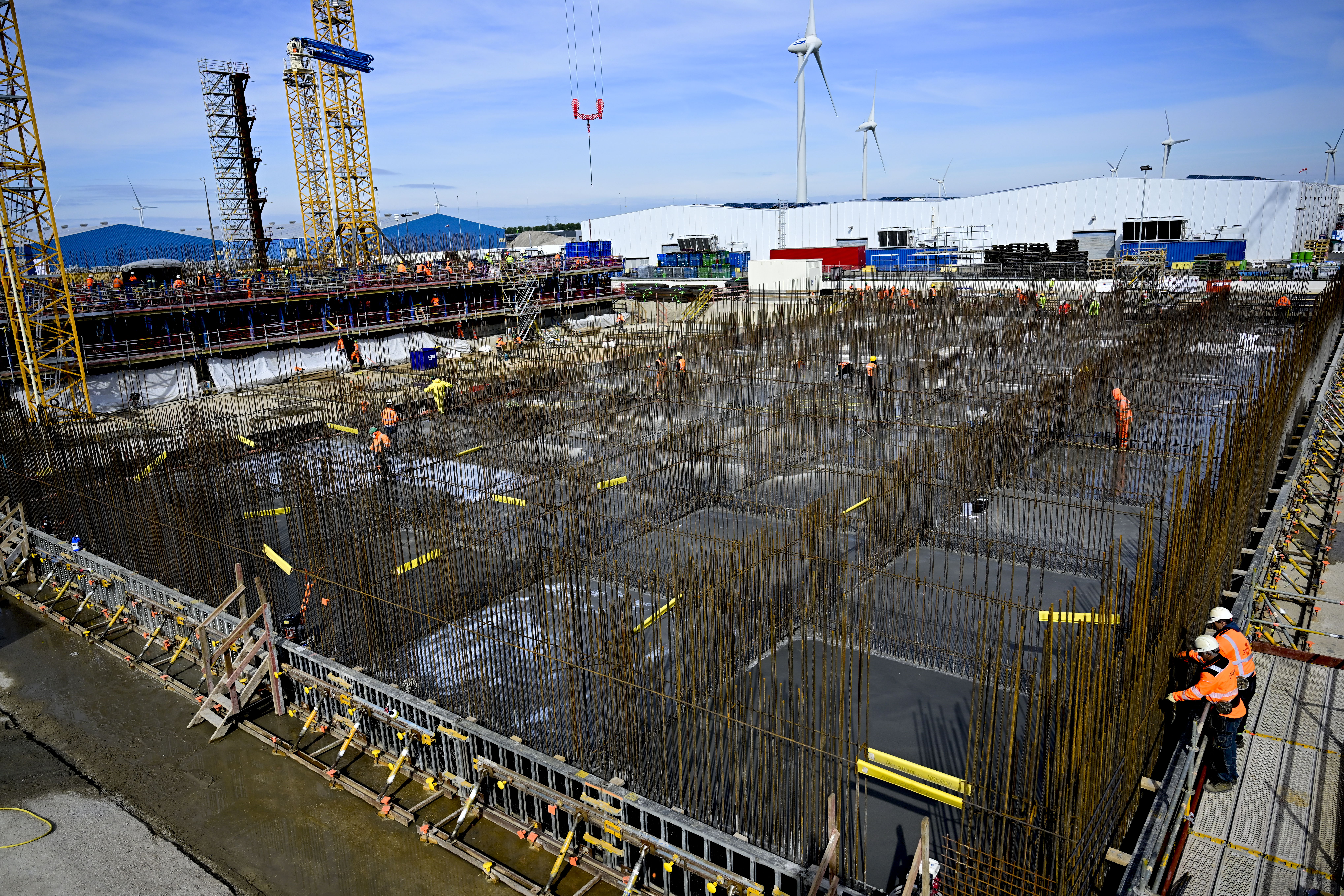Cost of North Sea energy island could reach 7bn euros, far exceeding initial estimates

The cost of the Princess Elisabeth energy island in the North Sea could soar to 7 billion euros, significantly higher than the initial estimate of 2.2 billion euros, report Belgian newspapers De Tijd, De Standaard and L’Echo on Thursday. The rising expenses could have serious consequences for Belgian consumers and businesses.
Belgian companies DEME and Jan De Nul are constructing the artificial island, which will serve as an energy hub for offshore wind farms. Built by transmission system operator Elia, the island is set to connect three wind farms by 2030 and facilitate new undersea cables to the UK and other North Sea countries.
However, concerns are mounting over the project’s escalating costs. Bert Wollants, a member of the Belgian Chamber of Representatives, warned that the price could reach 7 billion euros, though neither Elia nor Energy minister Tinne Van der Straeten has confirmed this figure.
Escalating expenses
Elia has acknowledged a significant rise in high-voltage infrastructure costs, driven by supply chain pressures, rising material prices and inflation. Energy regulator Creg has also flagged the cost surge, noting that it warned Van der Straeten about potential overruns in May. Van der Straeten has created a joint task force with Elia and Creg to try to contain costs.
The escalating expenses could have serious consequences for consumers and businesses. Energy tariffs are already expected to rise and the additional costs could further increase electricity bills for households and energy-intensive industries.
The construction site of the Princess Elisabeth energy island in the North Sea © BELGA PHOTO DIRK WAEM
Related news

